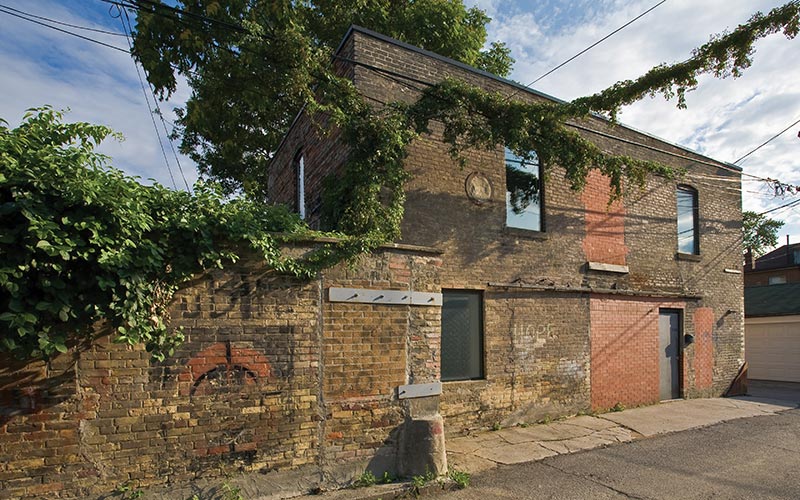Residential
Armstrong Avenue
Originally constructed in 1912 as a dairy, the exterior of this laneway residence has remained basically untouched, allowing for the delightful experience that comes from the discovery of the contemporary light filled interior when compared with the raw, industrial exterior.
An outdoor walled garden at the end of the living room was created by removing the roof of an auxiliary room. The end wall of the living room has been completely removed to create a physical and visual flow out to the garden, with a large glass sliding door flanked by floor to ceiling windows. In order to blur the distinction between inside and outside, the new exterior Ipe wood deck extends inside the house from the walled garden, and then “folds” down to become steps into the living room. At the far end of the garden, it “folds” up to become a bench. Even at night, with the exterior brick walls illuminated, the garden feels like an extension of the living room.
Due to its ecological benefits as a sustainable, rapidly renewable product, as well as its aesthetics, carbonized bamboo has been used in a variety of forms. Solid bamboo flooring throughout the ground floor is complemented by the use of bamboo veneer on the kitchen island.
Most recently, the second floor was gutted to create an intimate yet dramatic bedroom and ensuite bathroom with a series of custom millwork fabrications of solid bamboo plywood, which is detailed to expose the multi-layered cross grains that make up the finished panels. The bed’s bamboo headboard and canopy are inlaid with thin strips of LED, and further highlighted through the use of concealed LED’s at the base and canopy to create an illusion of floating planes.
